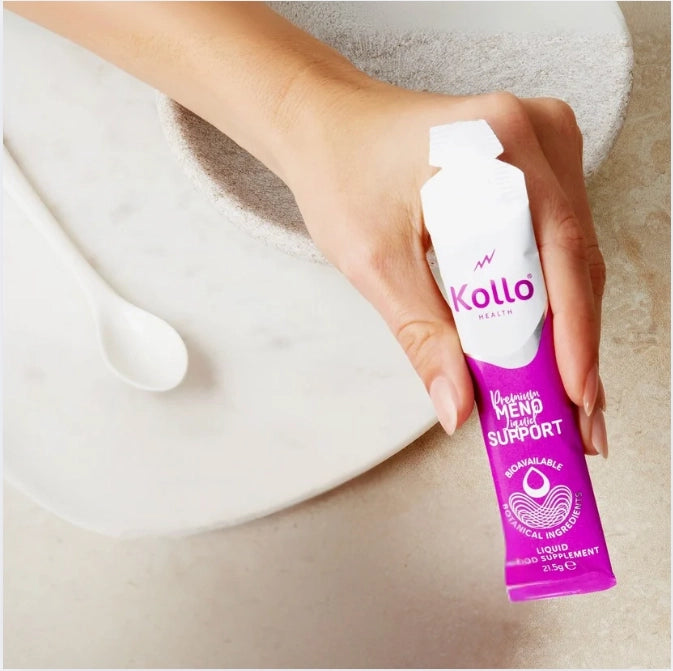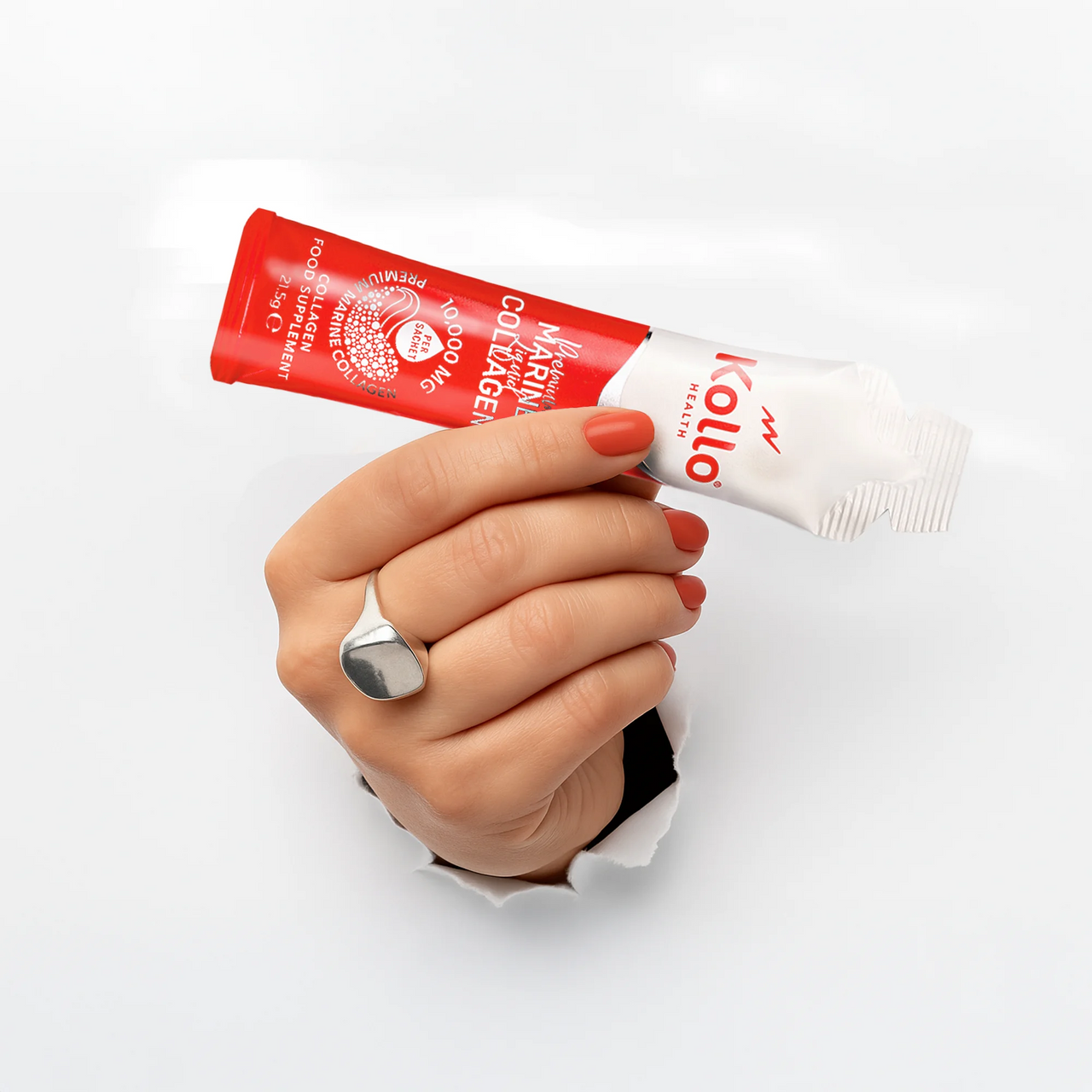What is the type of collagen in bone and what does it do?
Bone is a complex bodily tissue that is there to give structure to our body and resist loads and impacts that could cause it to fracture. For our bones to function as intended, we need to have sufficient bone density and the quality of the bone needs to be high. One of the key elements of this is the collagen content as it gives our bones density, suppleness and a healthy structure. But just how important is collagen in our skeletons and what is the type of collagen in bone?
In this post, we will look into the answers to these questions.
What is the type of collagen in bone?
Bone contains type I collagen – a lot of it, in fact. As much as 90-95% of the bone matrix is composed of collagen fibres. There are 206 bones in the adult human body, providing structural support for the body, protecting our internal organs and producing red and white blood cells. As we age, our natural collagen levels decline and we produce less of it to replace what we lose. Other factors can accelerate this decline, like poor diet, smoking and unavoidable things like hormonal changes in midlife and menopause.
The collagen in our bones makes the skeleton complete. With less of it present, bones gradually become porous and lose much of their strength. This means they have less density and lose much of their suppleness, becoming brittle and prone to fractures. Weaker bones can also cause pain when moving and lead to a condition called osteoporosis.
In order to maintain good bone health, we need to try to keep our collagen levels as high as possible. We also need to keep up a good intake of calcium and vitamin D. The importance of bone health should not be overlooked, particularly as you get older. Osteoporosis affects many people over 50 and is more common in women, and it can lead to pain and disability in older age. Essentially, this means a lower quality of life and, in many cases, a lower life expectancy.
What exactly does collagen do in bone?
In bone tissue, collagen is wound incredibly tightly into dense fibres. These fibres are distributed in a parallel arrangement, wound around other minerals and cells that are also crucial to the structure and function of the bone. The other components of the tissue each perform their own roles, but collagen is there to maintain structure, provide strength and also a quality of suppleness. All these properties are key to your bones’ strength and ability to resist loads and impacts.
Think about other structures you see in everyday life. Brittle materials, like glass, are not good at resisting mechanical forces. Place a heavy weight on glass or hit it with something and its inability to flex and bend means it simply shatters. On the other hand, a material like rubber is too flexible to provide support for heavy loads or to protect things against impacts – it may not break, but it will bend to an extreme degree. Neither of these types of material would be right for performing the role our skeleton does.
We need bones to fall somewhere in the middle. They need to be hard and rigid enough to maintain their shape when exposed to mechanical forces, but supple enough to not crack and shatter as soon as they feel an impact of any kind. Collagen is the primary thing that imparts this combination of firmness and suppleness. With insufficient levels of collagen in our bones, they become weak and brittle.
What is the collagen type in bone used for in other parts of the body?
Type I collagen is actually by far the most abundant collagen type in the body. Besides being abundant in bone tissue, it is found in the skin, tendons, ligaments, cartilage and more. Type I collagen tends to be arranged in the densely packed fibres described above, providing structure wherever it is situated. It provides similar properties of firmness and suppleness to connective tissues, which is important for various reasons throughout our bodies.
The other common collagen types in the human body are type II and type III. The properties and purpose of these different collagen types are somewhat different:
Type II collagen
This takes the form of more loosely packed fibres with greater elasticity. It is a common component of tissues in the joints, supporting movement with its elastic properties. Without the necessary levels of type II collagen, our cartilage and tendons become less adept at handling mechanical stress and shock absorption, so they can become damaged and begin to cause us pain.
Type III collagen
This collagen type is quite similar to type I and is present in our skin and bones along with other body tissues like those in the muscles and arteries. Again, it consists of fibres that provide a balance between firmness and suppleness, but that balance is different from what is provided by the other two collagen types listed here. You will find Type III collagen in reticular fibres like bone marrow.
Which collagen type is most important for bone health?
As you can see, type I collagen is by far the most abundant in our bones. This is true for the entire body, in fact. But type III collagen is also important for bone health, and type II collagen is crucial for joint health, which also plays a role in the health of our bones. There is no question that we need an abundance of type I collagen for strong bones, but the question of what is the type of collagen in bone truly leads to an answer involving all three.
The bottom line is this: for good health in your skin, joints, bones, arteries, organs and more, you need a lot of collagen. Your body will produce different types of collagen as required when you give it the fuel to do so. This fuel comes in the form of amino acids like glycine, proline and hydroxyproline (which are extremely abundant in collagen supplements) as well as various vitamins and minerals. Supply your body with lots of these things and it will produce new collagen at a high rate.
What is the best way to get the nutrients needed for collagen production?
The best sources of these nutrients are collagen supplements like Kollo and a balanced diet. Every daily sachet of Kollo contains 10g of premium grade marine collagen. This is type I collagen from the skin and scales of fish, very similar in structure to the collagen in our bodies. Broken down into collagen peptides, the collagen content is easily absorbed by our bodies to supply a high, consistent supply of the key amino acids your body needs to synthesise collagen.
Kollo also provides your daily dose of B vitamins and vitamin C that are important for collagen synthesis. You can boost this further by eating foods rich in those same vitamins along with proteins, zinc, copper, antioxidants and chlorophyll. This equates to a pro-collagen diet as it feeds the collagen-producing systems in your body with everything they need.
You can further enhance your pro-collagen lifestyle by making a few key changes. Certain behaviours are damaging your collagen, including:
-
Exposure to sunlight
-
Smoking
-
High stress
-
Lack of sleep
-
Eating too much sugar and refined carbohydrates
Preserving and boosting your collagen is a holistic practice that yields tremendous health benefits for your skin, hair, bones, joints, gut, organs and arteries. We recommend taking Kollo and making the other changes to your diet and lifestyle as listed above. You could also implement weight-bearing exercise to further strengthen your bones, muscles and joints for better health in older age.
What sets Kollo apart?
When you choose Kollo as your collagen supplement, you are choosing:
-
The highest-quality collagen peptides
-
A high daily dosage of collagen
-
An easy-to-use supplement – simply add the liquid to a glass of water
-
A great-tasting daily drink from natural, sugar-free flavouring
-
A supplement that is Informed Sport certified
-
A multi-award winning collagen supplement
We have followed science at every stage of development with Kollo. Our team is passionate about delivering a great experience for customers and Kollo has received over 2,000 5-star reviews since launch. Our collagen is sourced very sustainably and all our packaging is fully recyclable as part of our commitment to a low-waste product. We have paid attention to every tiny detail to provide the best possible experience for our customers. Most importantly, our product yields results – just read our customer reviews to see for yourself!
Results for bone density are typically experienced after 6-12 months of consistent collagen supplement usage, but other results can happen far quicker. Please browse our blog section to learn more about this and everything else rated to collagen. If you have any specific questions, please head to the contact page and get in touch – we’d love to hear from you.







